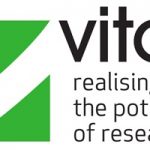 Professor Heather Hartwell is a UK-registered nutritionist and Professor in the Bournemouth University Business School. She has led many research projects, including the EC FP7 project VeggieEAT, the EC Horizon 2020 project FoodSMART and the British Council / Newton Fund project Veg+. In this blog post, Heather shares her experience of being a mentor at Bournemouth University and her thoughts on the mentoring role and relationship.
Professor Heather Hartwell is a UK-registered nutritionist and Professor in the Bournemouth University Business School. She has led many research projects, including the EC FP7 project VeggieEAT, the EC Horizon 2020 project FoodSMART and the British Council / Newton Fund project Veg+. In this blog post, Heather shares her experience of being a mentor at Bournemouth University and her thoughts on the mentoring role and relationship.
My primary goal in undertaking the mentoring programme facilitated by Organisational Development in 2009 was to use my experience and help staff who would like to enhance their own personal development and assist colleagues in realising their full aspirations. It was to give back to a community which had been totally supportive to me during my time in HE.
While there are theoretical models such as GROW (please see below) and much academic debate, mentoring to me is more fluid, less structured and more dependent on the mentor/mentee relationship.
| Goals
|
Identify goal to be achieved |
| Reality | Acknowledge the current situation and raise self-awareness |
| Options
|
Identify alternative courses of action |
| Will | Identify what will need to be done to make decisions on how to proceed.
The way forward |
Table 1 – The GROW model (Whitmore 2002)
Respect for each other and commitment to action are crucial in a successful mentoring relationship where both are in tune and harmony. Notwithstanding, the nature of the mentor/mentee rapport changes with time; initially the focus may be on helping the member of staff settle into their new role, providing information and support on practical issues. The dynamics will then change to be more symbiotic and two way street.
Academic staff mentoring new academic colleagues may:
- Review education and assessment strategies
- Give support on exam question setting and assignment marking
- Share education expertise and resources
- Observe learning and teaching sessions and offer supportive formative feedback
- Invite mentee to observe them
- Offer guidance on university quality procedures and systems
- Motivate and encourage innovative approaches to teaching
- Support the mentee in submitting bids for grants and funding, providing guidance, feedback and opportunities for peer review
- Support the mentee in writing for publication, identifying appropriate journals and providing guidance, feedback and opportunities for peer review
- Identify with the mentee to engage in research, enterprise, professional practice
- Identify opportunities with the mentee to disseminate research, enterprise, educational and professional practice
- Introduce them to appropriate networks of support and collaboration
What type of person makes an Effective Mentor?
Clutterbuck (2004) suggests that a good mentor is someone who has:
- An interest in developing others
- An interest in continuing to develop themselves
- Reasonably good explaining skills
- Good listening ability
- A broader perspective than the mentee’s
- Generally good behavioural skills
- Integrity
- A sense of humour (absolutely essential in the eyes of mentees!)
I thoroughly enjoy the role and get great pleasure in the success of those who I support.
I hope that I am inspirational, enthusiastic and empathetic, although we must ask my mentees! The role takes my work to a new level within BU and provides a resource that hopefully will benefit not just individuals but the organisation as a whole.
References:
CLUTTERBUCK, D., 2004. Everyone Needs a Mentor. London: Institute of Personnel Management
Talbot Campus Ref: 658.407124
WHITMORE, J., 2002. Coaching for Performance: GROWing people, performance and purpose. London: Nicholas Brealey
Talbot Campus Ref: 658.312404
 Vitae Mentoring for Researcher Developers Pilot
Vitae Mentoring for Researcher Developers Pilot Mentoring week: Research mentoring in BUBS
Mentoring week: Research mentoring in BUBS










 Dr. Ashraf cited on ‘Modest Fashion’ in The Guardian
Dr. Ashraf cited on ‘Modest Fashion’ in The Guardian NIHR-funded research launches website
NIHR-funded research launches website Academics write for newspaper in Nepal
Academics write for newspaper in Nepal New paper published on disability in women & girls
New paper published on disability in women & girls Global Consortium for Public Health Research 2025
Global Consortium for Public Health Research 2025 MSCA Postdoctoral Fellowships 2025 Call
MSCA Postdoctoral Fellowships 2025 Call ERC Advanced Grant 2025 Webinar
ERC Advanced Grant 2025 Webinar Horizon Europe Work Programme 2025 Published
Horizon Europe Work Programme 2025 Published Horizon Europe 2025 Work Programme pre-Published
Horizon Europe 2025 Work Programme pre-Published Update on UKRO services
Update on UKRO services European research project exploring use of ‘virtual twins’ to better manage metabolic associated fatty liver disease
European research project exploring use of ‘virtual twins’ to better manage metabolic associated fatty liver disease